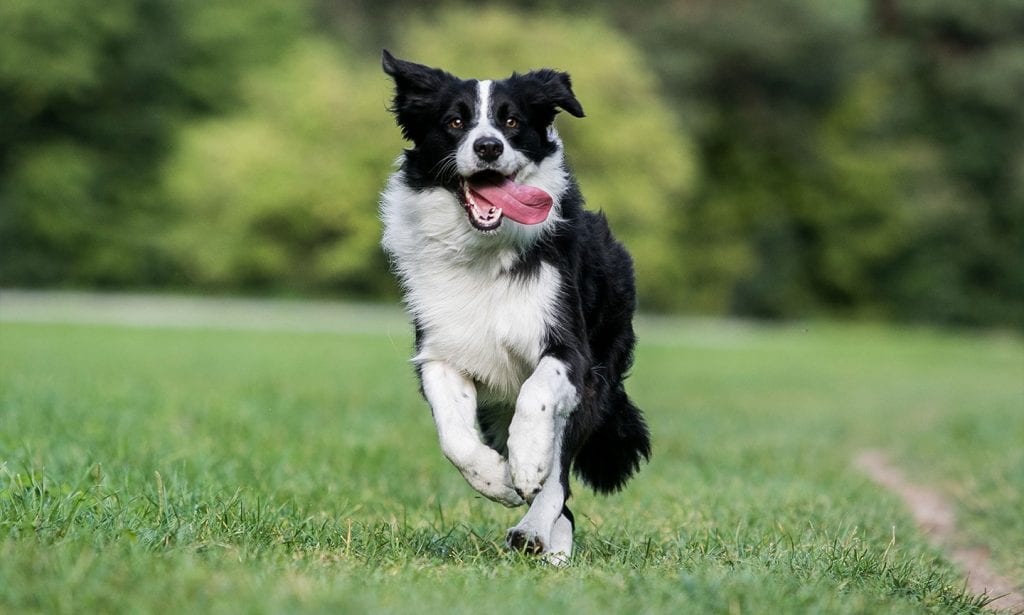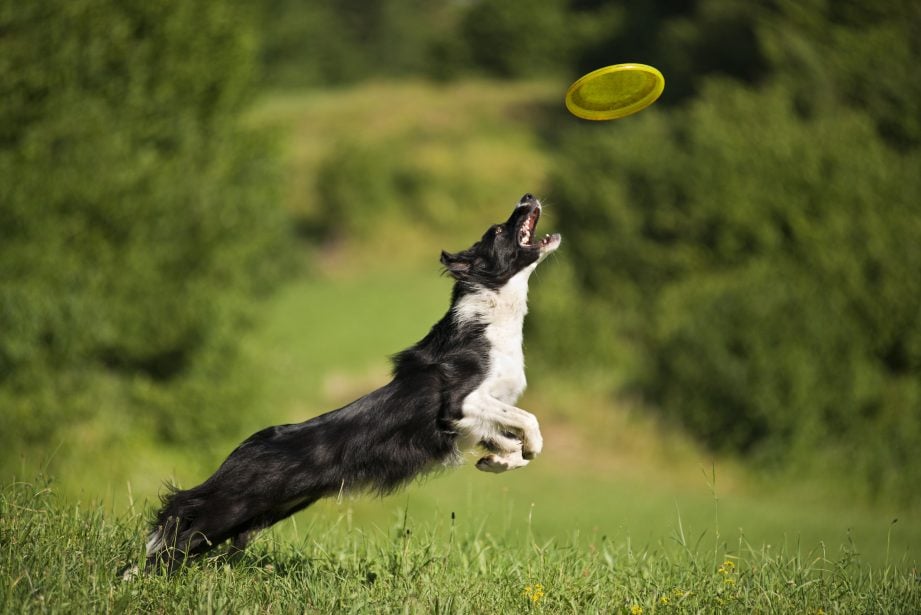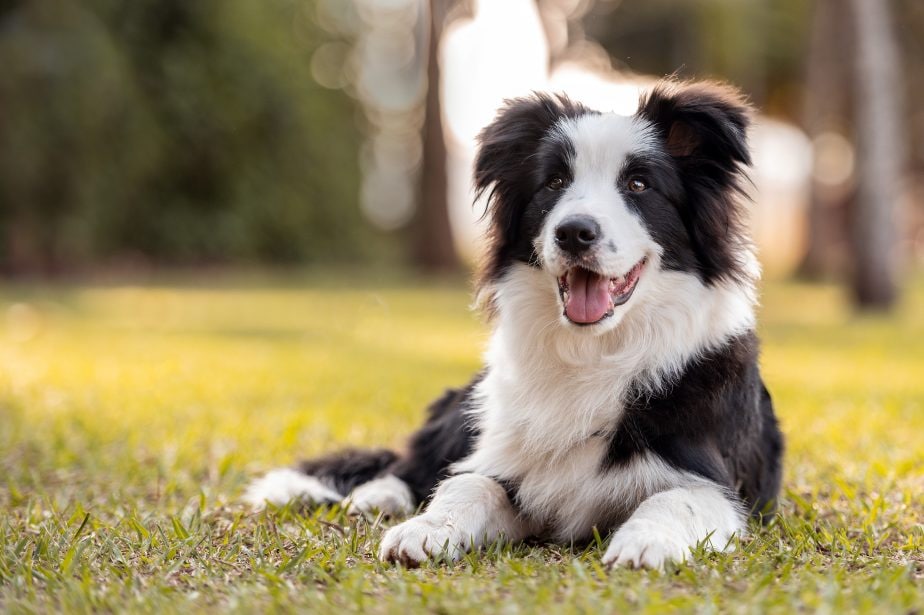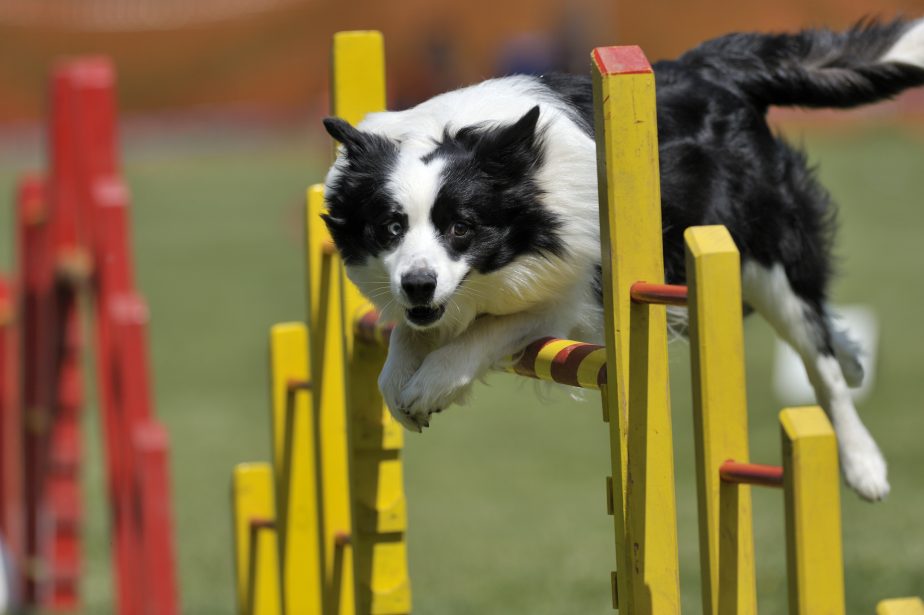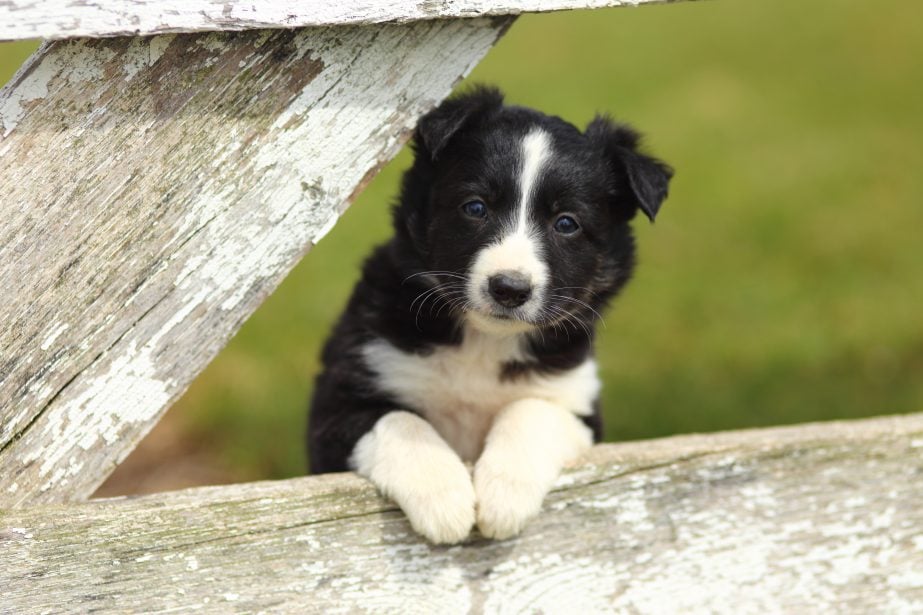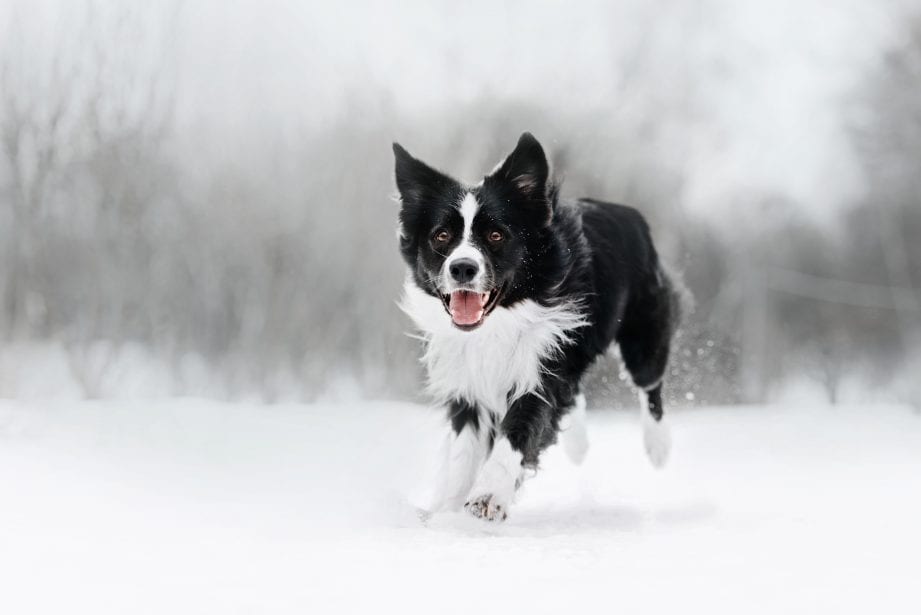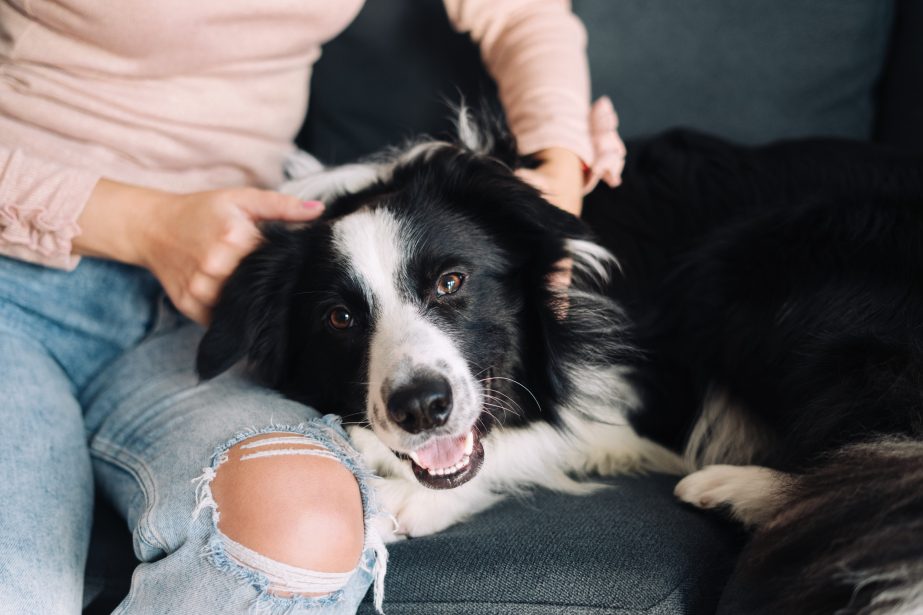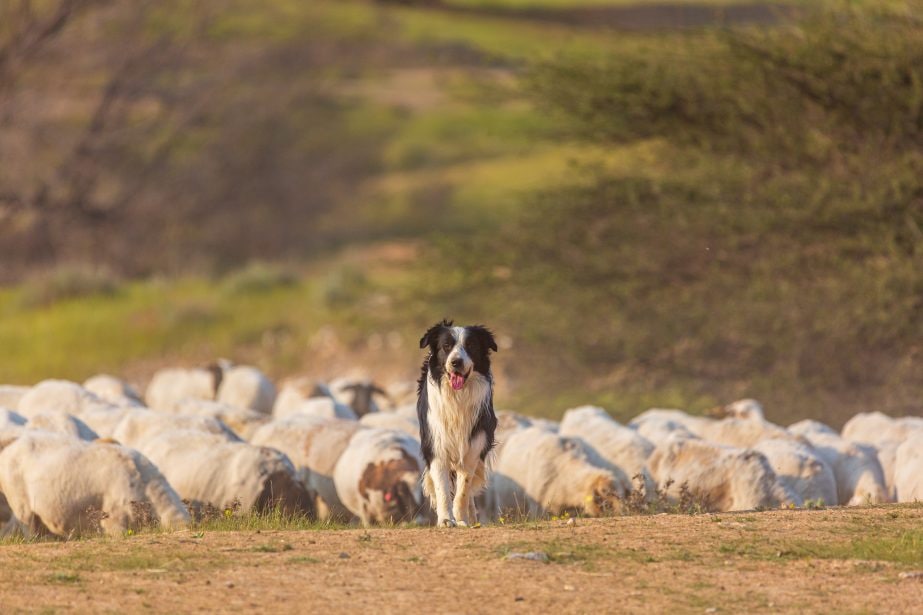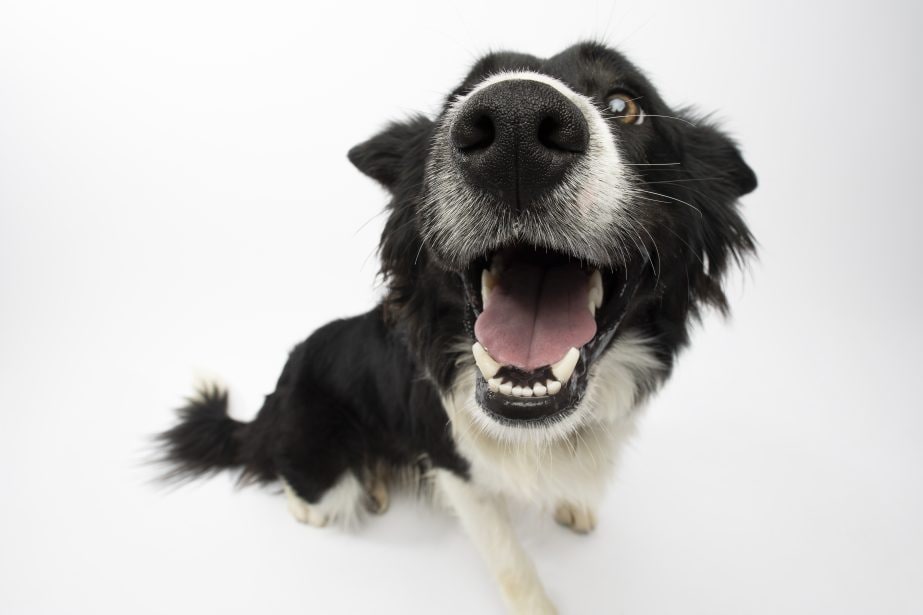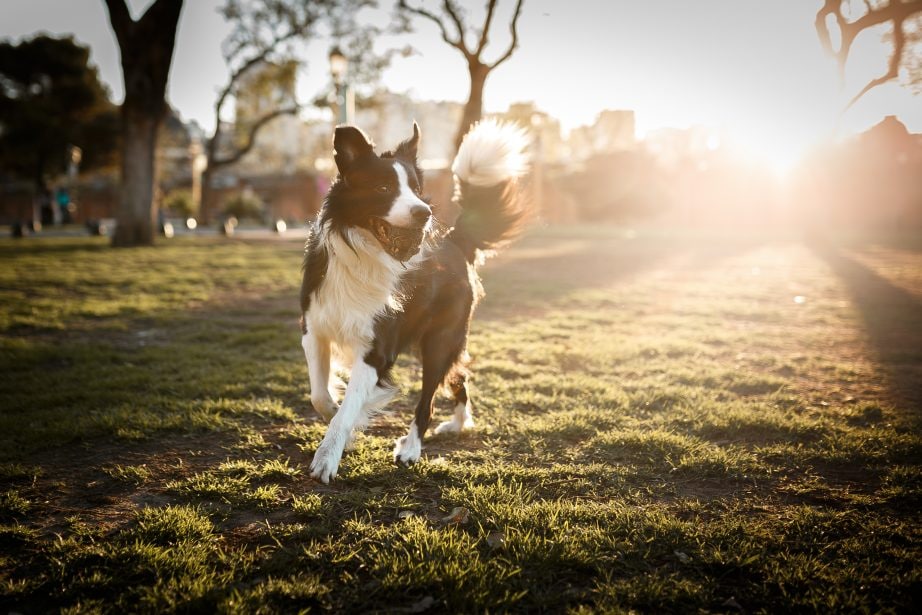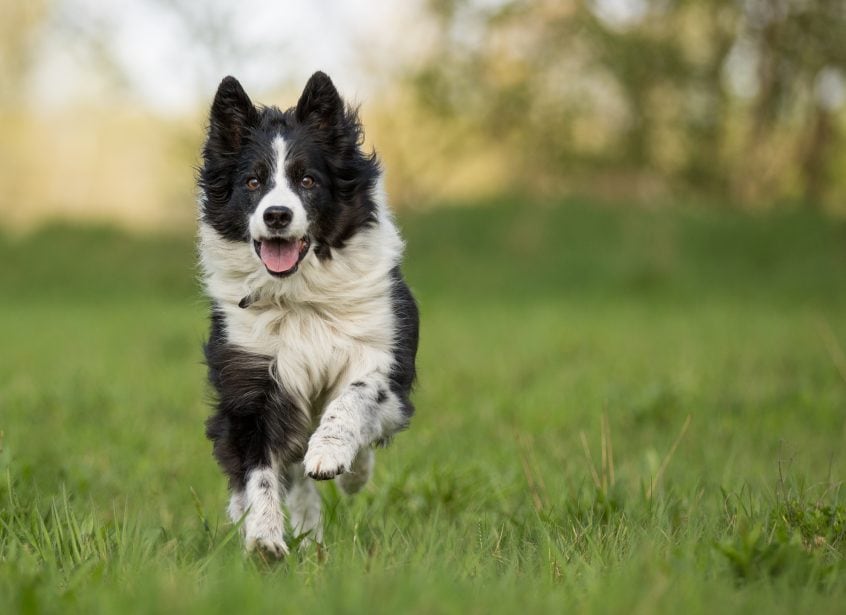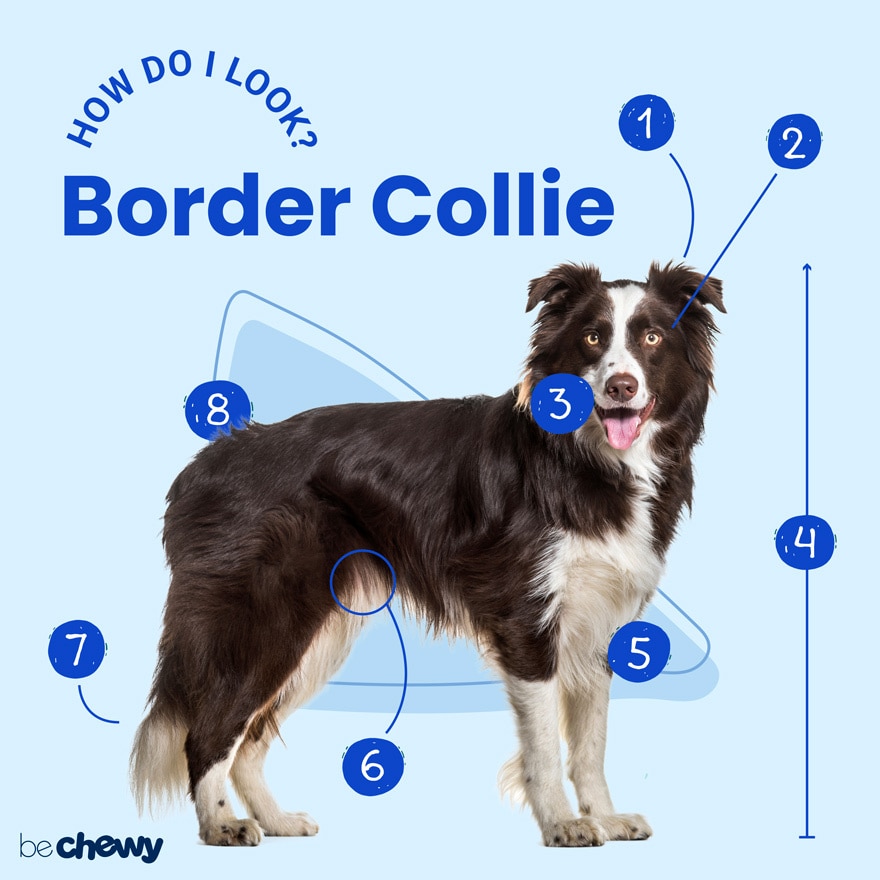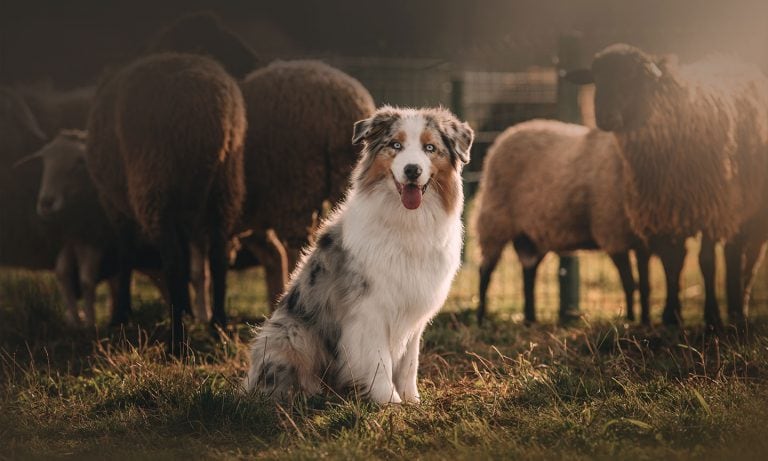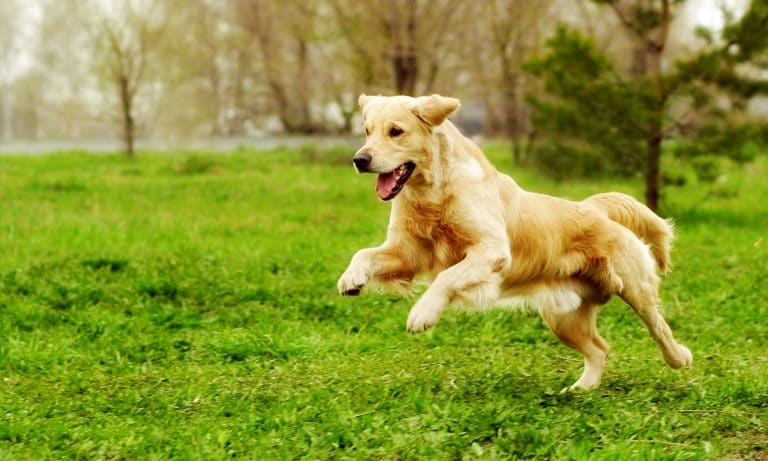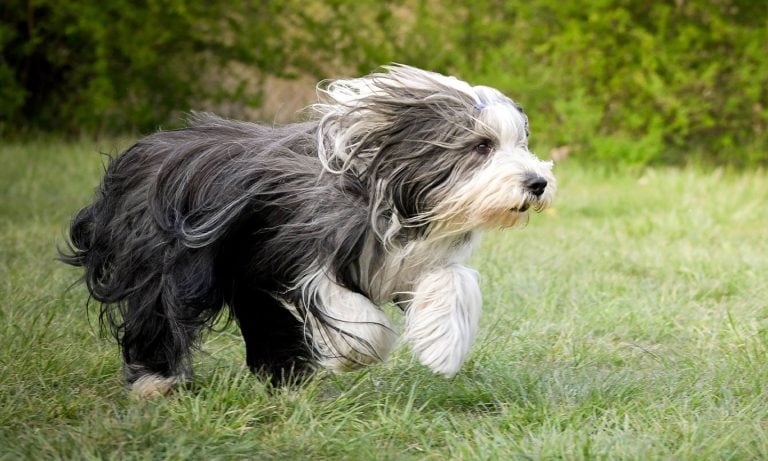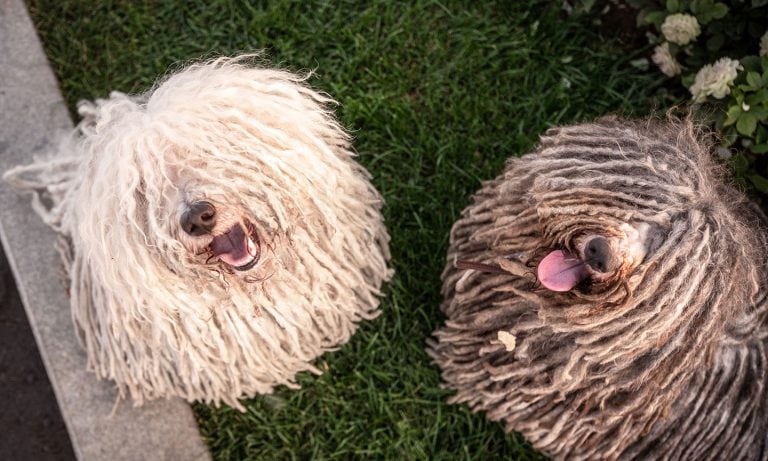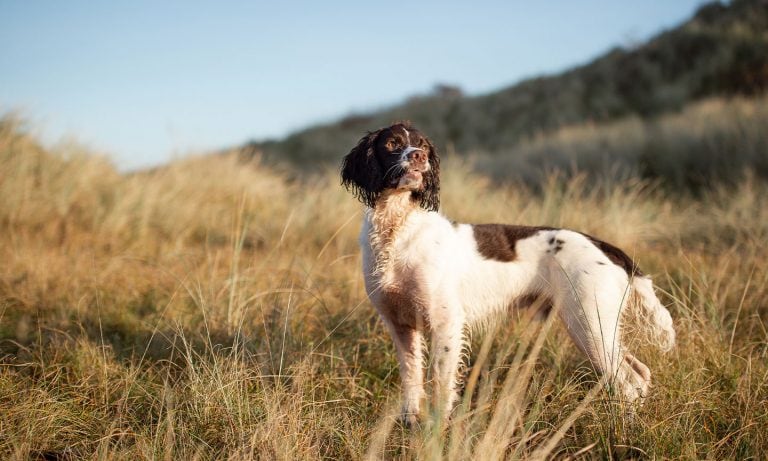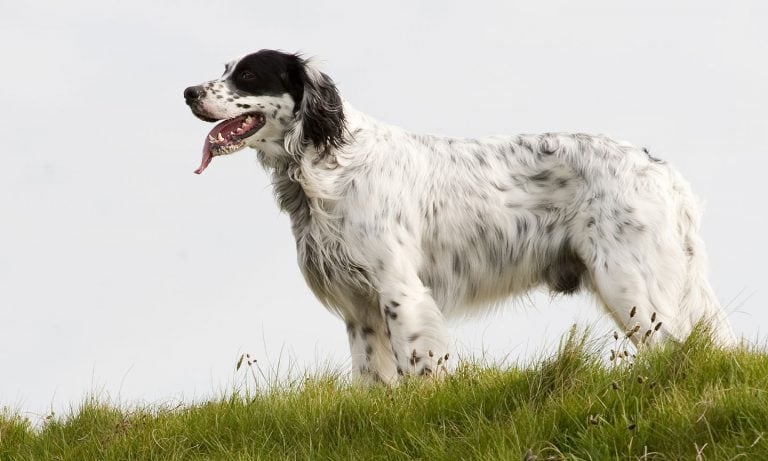The Border Collie is the class valedictorian of canines. Considered one of, if not the most intelligent dog breeds, these high-energy overachievers come with plenty of extracurriculars on their resume, including running, herding and search-and-rescuing. If ever there was a dog who lived by the motto “Work hard, play hard,” it’s the Border Collie. They’re energetic workaholics who love having a job to do. And yes, playing fetch counts. A true go-getter, Border Collies excel in many roles, but being your canine companion just may be their favorite.
Breed Snapshot
Temperament:
IntelligentActiveConfidentCoat Color:
BlackBlueBlue MerleRedRed MerleSableWhite And BlackWhite And Blue MerleWhite And RedLilacSaddleback SableSable MerleGoldBrindleWhite And BlueWhite And Red MerleWhite Ticked
Best For
Highly intelligent and full of energy, Border Collies are best for experienced dog parents who can provide mental stimulation and have ample time to train, walk and play with their pup. These athletic dogs do well in single-dog homes with plenty of space to run.
Border Collie Temperament
Leaving a trail of toys in their wake and seeking constant companionship, Border Collies are known for their intelligence and unwavering loyalty to their humans. This working dog breed thrives on routines and purpose, finding joy in fulfilling tasks. However, without an assigned job, they may create their own unique tasks (think: hunting socks, digging holes, chewing furniture), which may not always align with household rules.
Originally bred for herding sheep, Border Collies take their role as herder-in-chief seriously, which is great if they’re out in a field with livestock but tricky to handle when their herding instincts kick in in a home with other animals. They appreciate order and may get overwhelmed in a chaotic household or a household where they can’t predict their next walk or play session.
But that doesn’t mean the Border Collie breed isn’t a great choice for a family pet. They are extremely affectionate and happy to be part of the pack; they just need guidance on their role. They see humans as equals and want you to tell them everything you’re doing and why. They’ll bring you toys, give kisses and cuddle. You’ll never feel alone with a Border Collie—they’ll follow you everywhere, even to the bathroom.
Despite their strong loyalty and affectionate nature, a Border Collie’s remarkable intelligence can manifest as an “I know best” attitude, and they may appoint themselves as Park Ranger at the dog park, regulating other dogs’ behavior whether it’s appreciated or not. For these reasons, you must train your Border Collie well when they’re a puppy so they learn to play nicely with others.
How to Care for a Border Collie
A Border Collie puppy or adult dog may be highly intelligent, but that doesn’t mean they don’t need a little human guidance. Plenty of exercise, human interaction and a steady routine that includes grooming, training and outdoor “work” will set these natural people-pleasers up for success.
Border Collie Health
A typical Border Collie’s lifespan is between 12 and 15 years. Medium in size, the Border Collie is robust and tailored for working into retirement, ensuring a healthy life expectancy that often extends well into the teens.
That said, Border Collies are prone to certain health issues. Knowing about these issues can help you and your vet keep an eye out for problems, practice preventative care and help keep your Border Collie healthy longer.
- Hip Dysplasia: Hip dysplasia, which occurs when the ball and socket of the hip bones don’t properly fit, can be an inherited condition. Hip dysplasia often results in pain, limping and arthritis. Treatment options may include weight management, joint supplements, pain medication and in severe cases surgery.
- Epilepsy: The first seizures in dogs with epilepsy usually occur between the ages of 6 months and 5 years. Seizures can range from mild to severe. Treatment is typically daily medications. Epilepsy may be inherited, so knowing your dog’s parents’ medical history can be beneficial and genetic testing may be available.
- Eye Abnormality: Border collies are prone to two potential genetic eye abnormalities: Collie eye anomaly (CEA) and progressive retinal atrophy (PRA). There are genetic screening tests for both conditions, so be sure to ask your breeder if your potential pup and/or their parents have been checked. Unfortunately, neither condition has a treatment, but blind dogs or those with limited vision can do very well and have good quality lives.
- Collapsing After Exercise: Induced Border Collie collapse (BCC) is when an apparently healthy Border Collie becomes dazed, disoriented or confused during or after intense exercise. A Border Collie may seem out of it for five to 20 minutes or so. It’s unclear why this happens, although genetics may be a factor.
- Deafness: Congenital deafness has been noted in Border Collies. While the specific genetic defects have not been identified, the risk may be higher in merle color patterns, collies with mostly white heads and those with two blue eyes. Research is ongoing for this issue, so please see your veterinarian if you suspect your pup is having trouble hearing.
- Multidrug Resistance Mutation (MDR1): MDR1 is a genetic condition in dogs that makes them more prone to serious side effects to certain medications, mainly ivermectin, which is found in many heartworm preventatives. A genetic screening test exists, and pet parents with affected dogs should discuss with their vet the right choice for preventative medication for their pet.
- Trapped Neutrophil Syndrome (TNS): TNS is a genetic condition that compromises a Border Collie’s immune system and can lead to severe infections. This condition is not curable and is considered fatal. However, genetic screening testing is available, so be sure to discuss TNS screening with your breeder.
- Neuronal Ceroid Lipofuscinosis (CL): CL is a genetic disorder that causes neurologic symptoms such as tremors, seizures, blindness and shortened life span. Genetic screening testing is available, and breeding dogs should be tested.
Border Collie History
Amidst picturesque landscapes in Great Britain, on the border between England and Scotland, a remarkable breed of sheepdog emerged: the Border Collie. Rooted in Scottish heritage, the word “Collie” was used to describe useful dogs, such as herders. In the mid-19th century, Queen Victoria raised several of these energetic dogs, which helped separate the Border Collie breed as we know it today from the Collie dog of older times.
In 1995, the American Kennel Club (AKC) recognized the Border Collie as such. Other names the breed is also referred to include:
- Welsh Sheepdog
- Northern Sheepdog
- Highland Collie
Their heritage as a sheep dog is never far beneath the surface: You know a Border Collie by their workhorse tendencies and for “the stare”—the piercing gaze they give sheep (or whatever they feel like herding) to get in line.
Today, Border Collies hold a special place in the zeitgeist: They star in dog sports such as sheepdog trials (a trait exemplified in the movie “Babe”) and hold many Guinness World Records, both serious and silly (one notable one is “the fastest time a dog has unwound a non-electric car window”). A dog known as the “World’s Smartest Dog,” Chaser the Dog, was a Border Collie who knew and understood over a thousand words.
It’s no wonder Border Collie enthusiast groups such as the Border Collie Society of America love these ultra-intelligent dogs for their showmanship, loyalty, watchdog ability and companionship.
Where can you get a Border Collie puppy?
The American Kennel Club Marketplace showcases puppies from AKC-registered breeders. What’s the average Border Collie price, you ask? Expect to spend between $600 and $2,000 on a purebred Border Collie puppy, depending on the breeder, but for that price you should be getting a dog who’s been screened for health and behavioral issues. (Double-check that the breeder does screen for those.)
Another option is to adopt a dog from a local Border Collie rescue group, like Clancy’s Dream in Central Indiana, or an animal shelter. You can also search Chewy’s database of adoptable dogs in your area. If you are unsure of where to start your adoption search, contact the Border Collie Society of America or talk to local breeders and vets to see what rescues they’d recommend.
When adopting a Border Collie, ask why the former pet parent surrendered the dog and if the rescue has noticed any health or behavioral issues. Once you bring your rescue Border Collie home, be very patient. Border Collies are ingrained to trust and help humans, and when that trust is broken, it can take a lot of time and love to overcome that distrust. But it’s very worth it! Get more advice on what to expect during the adoption process.
Aside from the initial cost of bringing home a Border Collie, whether purchasing one through a reputable breeder or adopting, you’ll want to budget for the cost of caring for a Border Collie throughout their entire lifespan, including regular vet visits, training, food and grooming. Get a breakdown of the cost of a dog.
Border Collie Facts
- Border Collies are extremely intelligent and require a lot of mental stimulation. They love games and trying to figure things out.
- They excel at numerous activities beyond herding, such as Frisbee, scent work, obedience, rally, agility, dock diving and flyball.
- Border Collies are stoic; they will hide the fact that they are sick or hurt.
- Border Collies spent centuries learning how to read humans by body language, voice and scent, and as a result, are highly intuitive.
- The American Kennel Club (AKC) didn’t recognize the Border Collie as a breed group until 1995.
FAQs
Are Border Collies hypoallergenic?
No, Border Collies are not hypoallergenic. Both rough- and smooth-coat types shed, and shedding may be problematic for people prone to allergies.
Are Border Collies good with cats?
You can train a Border Collie to live with a cat, but their tendency to herd can make them annoying to felines. Many Border Collies and cats establish a live-and-let-live approach but may never become BFFs.
Do Border Collies bark a lot?
Border Collies may bark excessively if they’re bored or if there is chaos surrounding them. Early training can help a Border Collie curb their bark, but they aren’t naturally a quiet breed.
Are Border Collies high maintenance?
Border Collies trend high-maintenance, but just how much they require from you can vary based on their ancestry. Are they from working stock? Show stock? Working stock dogs tend to need more physical activity than those bred for the show ring. However, all Border Collies need training or else they will train you. Because of their intelligence, work drive and high energy, they need structure and routine, and thrive with at least two hours of exercise a day. You can’t passively own a Border Collie—you have to put in the work, but with that comes great reward.
What are the differences between Border Collies and Australian Shepherds?
Border Collies and Australian Shepherds are both highly intelligent working dogs, but they do have distinct differences. For starters, Border Collies originated from the borderlands between England and Scotland, while Aussies were developed in the United States during the Gold Rush era.
Both breeds are herders, renowned for herding sheep and cattle, but their herding techniques differ. Border Collies control livestock from a distance through eye contact. Aussies herd closely, relying on their body and voice for livestock movement.
Additionally, the two breeds have distinct physical differences. Aussies are more muscular compared to Border Collies, though their heights are similar. Also, Aussie colors include black, blue merle, red or red merle with tan or white markings. Border Collies can have any color as long as white patches are not dominant.
What are the most popular Border Collie names?
Some popular Border Collie names include:
- Oreo (for the black and white coats)
- Luna
- Bella
- Lucy
- Max
- Charlie
- Sadie
- Finn
- Bear
- Molly
- Cooper
Want some canine celebrity inspiration? Consider Fly (the name of the Border Collie in “Babe”), Murray (the Border Collie mix in “Mad About You”), or Nana (the Border Collie in “Snow Dogs”). Get more dog names.
What are the most common Border Collie mixes?
The most common Border Collie mixes are:
- Border Collie-Australian Shepherd mix (Border Aussies or Aussie Collies)
- Border Collie-Labrador Retriever mix (Borabor)
- Border Collie-Husky mix (Border Husky)
- Border Collie-German Shepherd mix (Shollie)
- Border Collie-Golden Retriever mix (Coltriever, Golden Border Collies or Golden Border Retriever)
- Border Collie-Poodle mix (Bordoodle)
- Border Collie-Corgi mix (Borgi)
- Border Collie-Beagle mix (Border Beagle)
- Border Collie-American Pit Bull Terrier mix (Border Bull)
- Border Collie-Blue Heeler mix (Border Heeler)

Top Takeaways
Eager to please, fun to train and happy to help, a Border Collie is an excellent addition to the family—even if you live solo. They value a true partner. They need a lot of attention, a strict routine and plenty of outdoor time to be their happiest—all things that are good for you, too.
Expert input provided by Dr. Deb Breitstein, DVM, a veterinarian at IndeVets in Philadelphia, Pennsylvania; Merissa Kriedler, CPDT-KA, KPA CTP, a trainer at Fuzzy Logic Dog Training in Louisa, Virginia; and and Karen Mull, Treasurer for the Border Collie Society of America, who has raised Border Collies for over 25 years and shown her dogs in Conformation for the last 10.
Breed characteristic ratings provided by veterinarian Dr. Sarah Wooten, DVM; dog trainer and behavior consultant Irith Bloom, CPDT-KSA, CBCC-KA, CDBC, owner of The Sophisticated Dog, LLC, in Los Angeles; and certified animal behavior consultant Amy Shojai, CABC.
The health content was medically reviewed by Chewy vets.

Search for Adoptable Border Collies Near You
Share:
